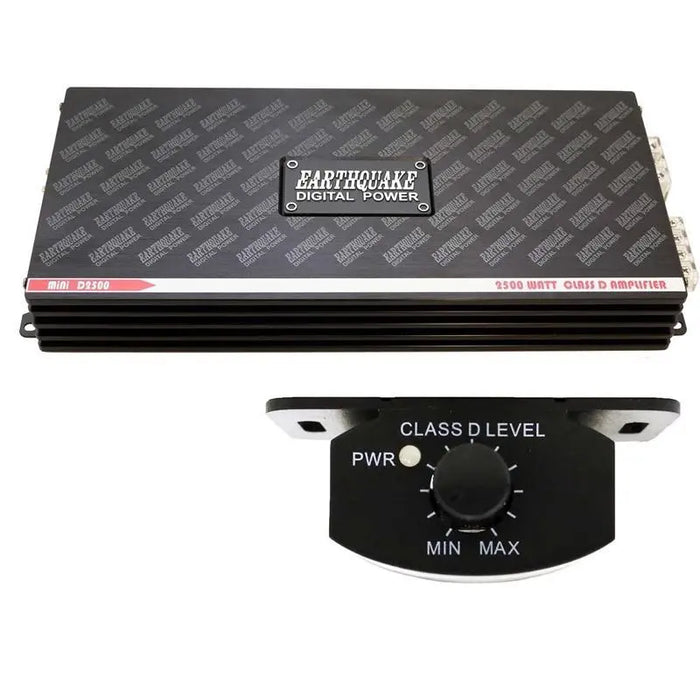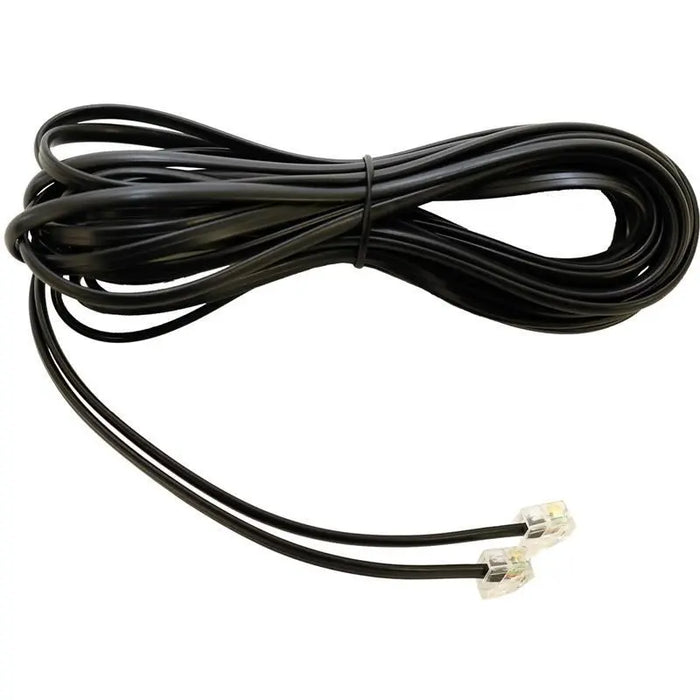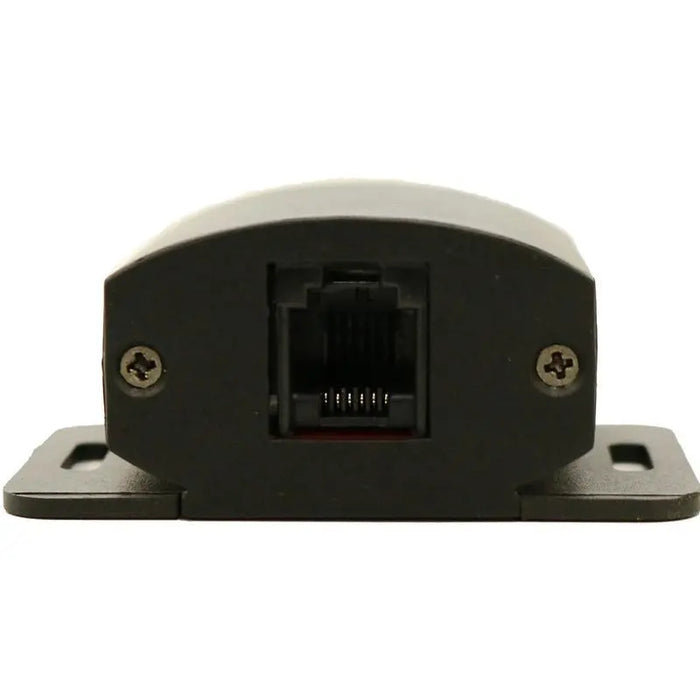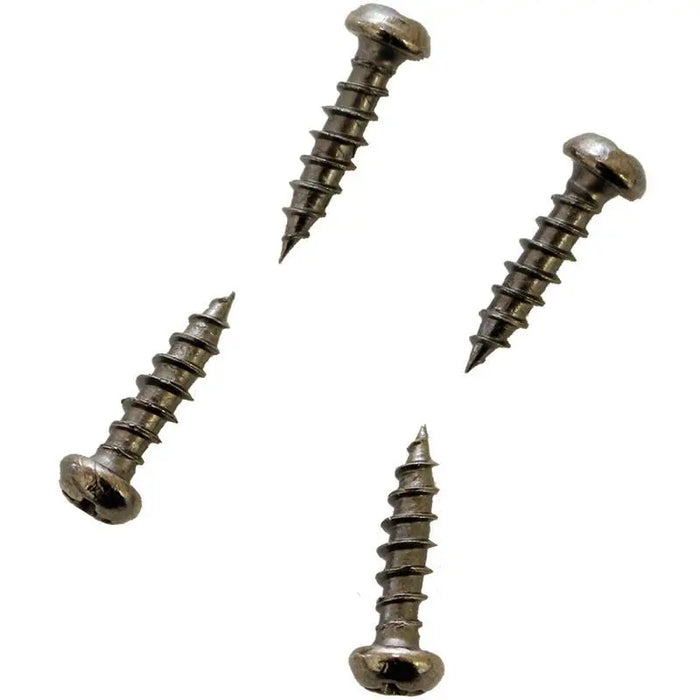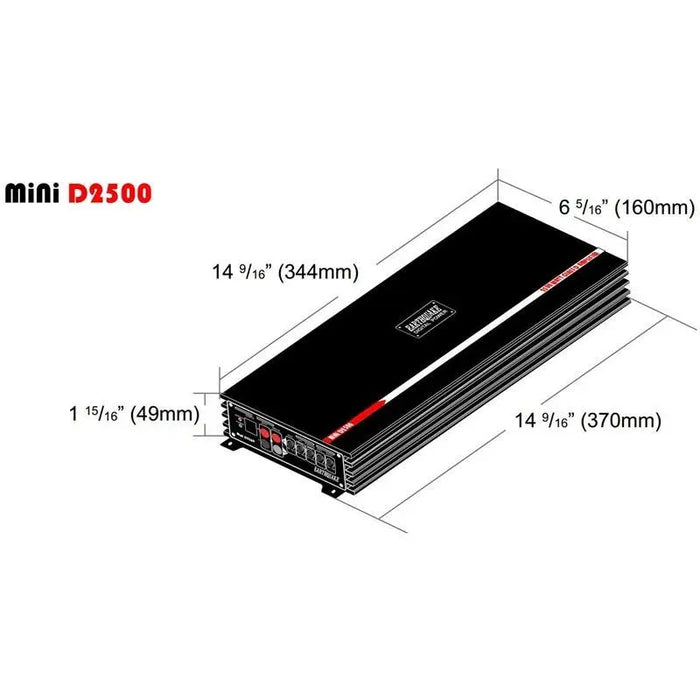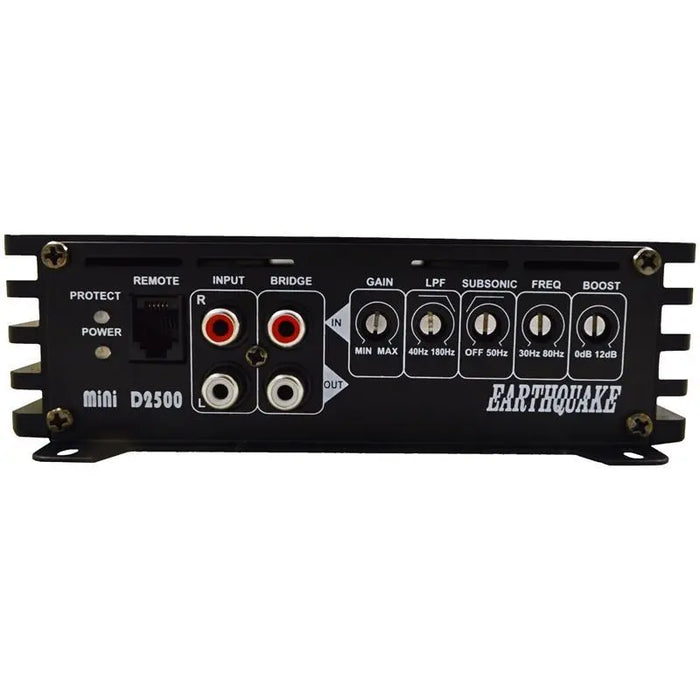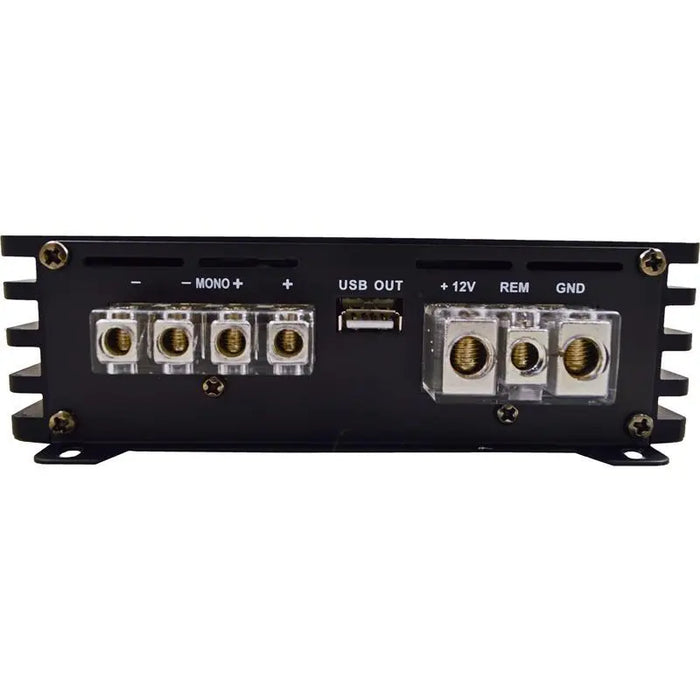Earthquake Sound Mini D2500 2nd Gen Mono Block Class D 2500 Watts Car Amplifier
Brand: Earthquake Sound
MPN: Mini D2500
Condition: New
The Earthquake MiNi D Mono amplifiers are the most efficient class "D" series ever built. These amplifiers deliver unbelievable power despite of their super-compact size. With less than 2-inch tall and 7-inch deep, the MiNi D Mono amplifiers can be installed in tight spaces of the vehicle (under the seat, behind the back seat, etc.) allowing you to keep that valuable storage space in your vehicle. Earthquake Sounds 2nd generation series now has built in 5.2V USB connector to power a Bluetooth or WiFi module. One unique feature of the MiNi D Mono amplifiers is the BRIDGE IN/OUT that allows you to link 2 amplifiers together. Designed with patented Optical Control Circuitry, each of these amplifiers has a built-in protection fuse designed to handle 1 to 4-Ohm loads. In addition, the amplifier will automatically reset once the protection circuit is triggered. With the MiNi D Mono amplifiers, you won't have to sacrifice efficiency and space to get the immense power you need for your install. Better yet, due to its remarkable efficiency, you won't even need extra batteries for them.
Bass Boost
Allows you to select the center frequency that you want to boost as well as the quantity. For most application, the best setting is at 1/2 turn (2 o'clock position).
Variable Subsonic Filter
Often used to protect speakers from harmful low frequencies and DC voltage. Often clipped low frequencies could have the same effect as that of DC input. The best setting for most systems is at 30Hz Highpass.
LPF (Low Pass Filter)
Often mistaken as crossover, the LPF is used to filter out unwanted mid and high frequencies, leaving the woofer to respond to low frequencies. For most subwoofer application, the best crossing point is about 1/2 turn (2 o'clock position).
Gain Control
Regulates the amplifier's sensitivity to match the signal output voltage of the audio source/head unit. It is not a volume control. The Mini D amplifiers have gain controls that are extremely sensitive and therefore, shoulb be adjusted with caution. When set at Min, it will need 4V to clip these amplifiers. But with a mere 1/4 turn, the amplifers can clip with only 0.5V.
Functions and Features
Power LED
Protection LED
Remote Sub Level
RCA Input
Bridge In/Out
Gain Control
LPF (Low Pass Filter)
Subsonic Filter
Frequency Adjust
Bass Boost
Speaker Connection
USB Power Port
+12V Battery Terminal
Remote Terminal
Ground Terminal
Amplifier Class: D
Amplifier Output: 2500 Watts
Subsonic Filter: 18Hz Variable Level
Crossover Variable Low Pass: 40 - 180Hz
Bass Boost Frequency Range: 30 - 80Hz
Bass Boost Gain Level: 0 - 12dB
Stereo Input (RCA): Yes
Mono Input (RCA): Yes
Mono Output (RCA): Yes
Short Circuit Protection: Yes, with Auto Reset
Fuse Rating: 100A
Note: All Output Power Measurements are made with dummy load for the RMS Measurements. Dummy loads are harder to drive than speakers and demand more power supply current.
1 Ohm Watt Peak - 50% Loading: 2000
1 Ohm Watt Peak - 100% Loading: 1800
2 Ohm Watt Peak - 50% Loading: 1800
2 Ohm Watt Peak - 100% Loading: 1200
4 Ohm Watt Peak - 50% Loading: 850
4 Ohm Watt Peak - 100% Loading: 750
Car Amplifier
Bass Remote and Cable
Screws
Installation Manual
What is Proposition 65?
California’s Proposition 65 protects California consumers by requiring special warnings for products that contain chemicals known to the State of California to cause cancer, birth defects or other reproductive harm where those products would expose consumers to such chemicals above certain threshold levels.
If a product description on this site directed you to this page, the warning for this item is:
Who is this message intended for?
Customers with a California billing or ship to address.
Why are you seeing the message now?
California implemented new guidelines for Proposition 65 warnings, effective August 30, 2018. These guidelines were applied to make the warnings more clear and reasonable.
Where can you get more information about Proposition 65?
Learn more from the California Office of Environmental Health Hazard Assessment (OEHHA) site here.
